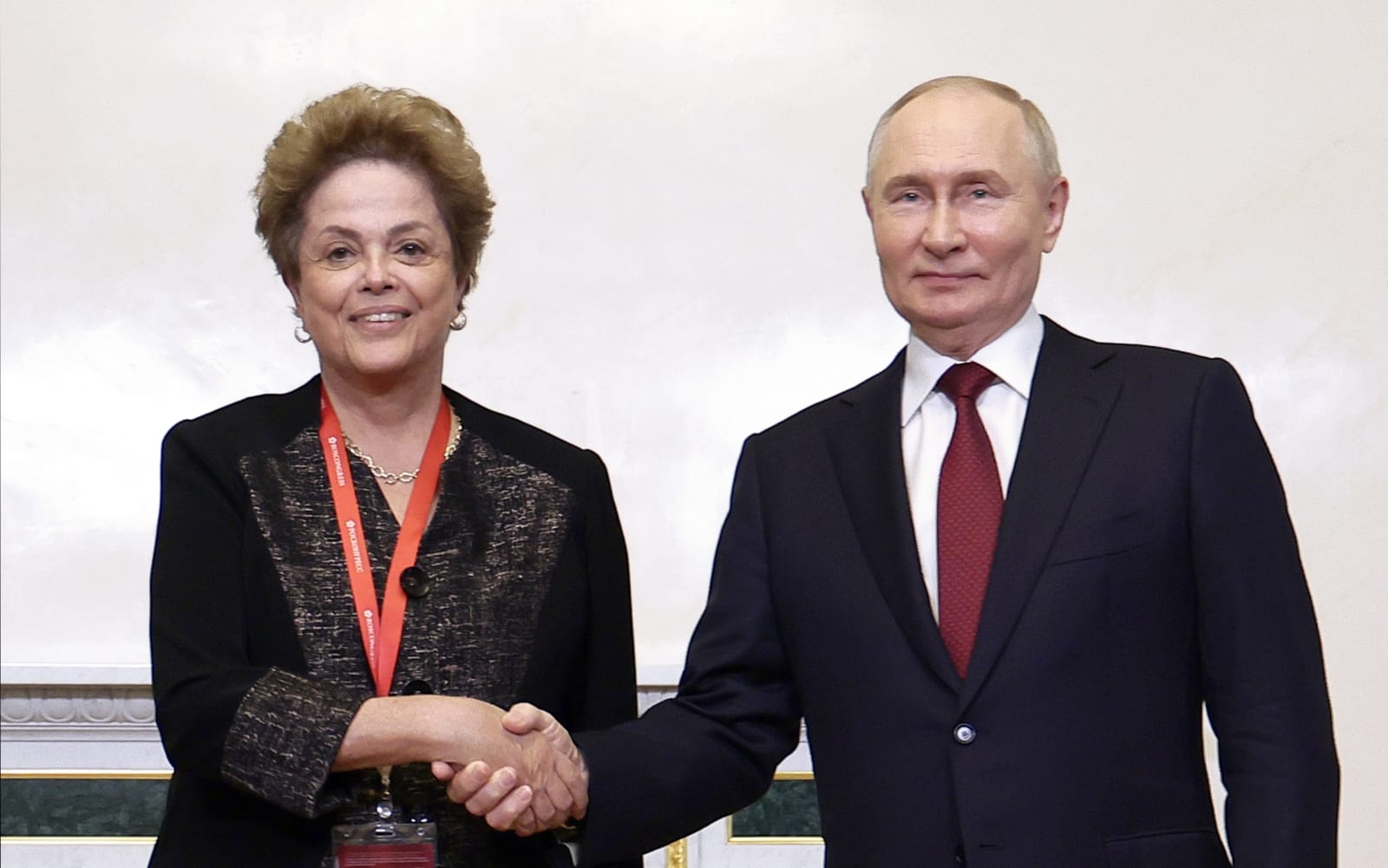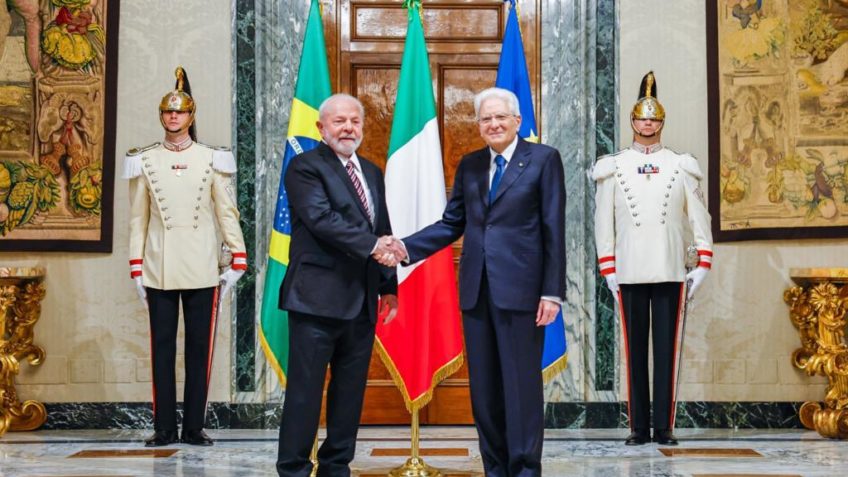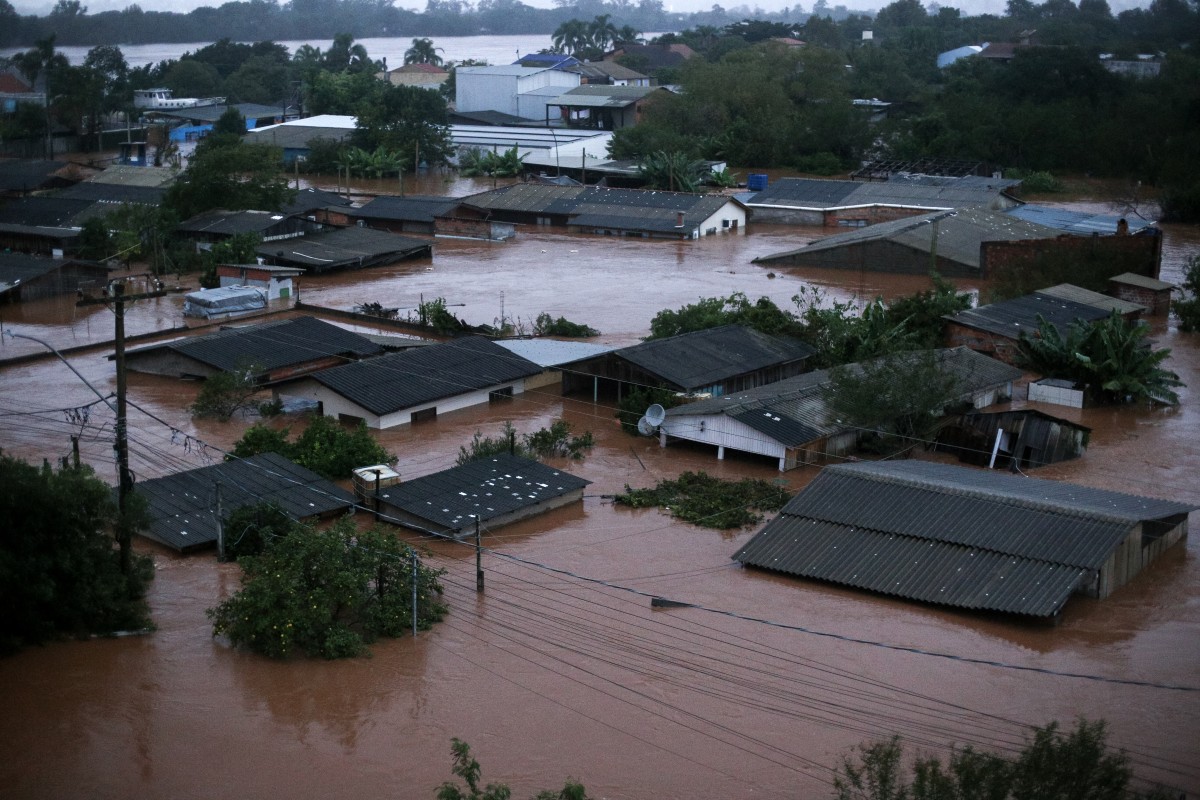Are_these_the_most_iconic_fashion_items_ever.txt
U.S. tariff hike gives Brazil a chance to lead climate debate Environment valorinternational.txt
Marcelo Kfoury,jogo de socorro of FGV: Clean energy, rare earths, and water are Brazil’s competitive advantages — Foto: Foto: Ana Paula Paiva/Valor The heavy tariffs imposed by the United States on Brazil are stirring more than just foreign trade. The anti-climate stance of Donald Trump’s administration is another side of the same coin of the trade war—one that, paradoxically, could strengthen Brazil’s global reputation, experts say. Donald Trump’s “anti-green” policies run counter to scientific consensus and the global agenda, says Marcelo Kfoury, professor at the S?o Paulo School of Economics at Funda??o Getulio Vargas (FGV EESP). According to him, even though Brazil has lost geopolitical weight and focused on commodities at the expense of industrialization, the country remains a leader in clean energy—an asset that can enhance its economic and environmental standing. “Clean energy, rare earths, and water are Brazil’s competitive advantages,” he said. Gustavo Pinheiro, of the Instituto Clima e Sociedade (iCS), agrees that the tariff war has escalated, acting as a smokescreen for the environmental debate, and frames the key challenge for COP30: preventing the spread of Mr. Trump’s anti-climate agenda. “Tariffs and the anti-climate stance of the United States are two sides of the same coin. It is economic policy coordinated with the fossil fuel sector under the pretext of boosting the economy, running against climate consensus,” he stressed. Ariáster Chimeli, professor of economics at the University of S?o Paulo (USP), notes that documents released in the wake of the tariff surge—often overlooked—are part of a strategy to distort the climate discussion in a year when Brazil, the country most affected by the tariffs, is hosting COP30 and could shine on the global stage of the energy transition. He also highlights that the White House has ignored the consequences of carbon emissions. While extra tariffs and negotiations over rates played out geopolitically, four U.S. secretaries rejected a mechanism approved by the International Maritime Organization (IMO) to fund the industry’s transition to sustainable fuels. The joint statement, issued on August 12, was signed by Marco Rubio (State), Howard Lutnick (Commerce), Chris Wright (Energy), and Sean Duffy (Transportation). It also threatened retaliation against IMO member countries supporting the proposal. Mr. Pinheiro recalls that since 2019, studies have shown that U.S. carbon tariffs would harm developing economies, such as Brazil and India, particularly in the metals and mining sectors. In late July, the U.S. Department of Energy released a new report on the impact of greenhouse gas emissions on the U.S. climate. Published on July 29, the document drew little attention, said Mr. Chimeli, but it illustrates the White House’s stance against global debates over the economic, environmental, and social costs of failing to pursue an energy transition. “This report, for instance, is convenient for Mr. Trump: in the short term, it does not slow the economy, nor does it risk jobs tied to fossil fuels, and it ensures political backing from that sector,” he said. For him, the administration’s recent anti-climate actions appear to mask the negative impact of tariffs on U.S. consumers and to indirectly reheat the economy, as suggested by the July 29 Department of Energy report. The document claims the U.S. does not play a significant role in global warming and therefore can continue investing in fossil fuels, which are usually cheaper. For climate-focused economists, Brazil holds a strategic position to advance the global energy transition—particularly with biofuels—giving it a competitive edge at the World Trade Organization (WTO). COP as the stage for debate Carlos Nobre, one of the world’s most respected climate scientists, agrees and adds that COP is the place to reverse the anti-climate narrative pushed by the U.S. under Mr. Trump. He notes that in a century and a half, the country has been responsible for 20% of all harmful emissions into the atmosphere. “They make up 3% of the world’s population, yet have produced 20% of total global emissions and continue to emit. It is very likely that over these four years, emissions will rise,” Mr. Nobre said, lamenting the White House’s recent authorization to expand fossil fuel exploration, including oil and natural gas. This move, he adds, is directly tied to the Department of Energy reports that downplay environmental and climate change impacts. For that reason, he argues, pressure must be applied on the U.S., with Belém serving as a hub for coordinated action among pro-climate countries. “We can stop exploiting fossil fuels and shift to entirely renewable energy. It is economically feasible,” he said. For the climatologist, investment in renewables drives economic activity. Power from renewable sources like solar and wind costs one-third that of fossil fuels, while creating four times more jobs, he highlighted. Along the same lines, Mr. Chimeli notes that climate data emphasized by Brazil could serve, indirectly, as leverage against the U.S. He recalls the long-running debate over “discriminatory tariffs” in the name of environmental protection. “At the time, U.S. shrimp producers complained about strict rules requiring equipment to avoid harming turtles. They argued that Southeast Asian countries were not bearing the same costs. The U.S. imposed tariffs on those countries, such as Malaysia, but set up financing programs for the Caribbean. This was challenged at the WTO, which sided with the U.S.,” he noted. Looking ahead, what is at stake is the transparency of U.S. climate data and a potential ‘watering down’ of climate research, Mr. Chimeli said—both of which could weigh heavily against carbon regulation. During Mr. Trump’s first term, the U.S. rolled back several environmental policies. Among the most striking, according to the professor, were the withdrawal from the Paris Agreement in 2017 and the weakening of the Environmental Protection Agency (EPA). Emanuel Ornelas, professor at FGV, with a PhD in economics, said there is no clear link between the U.S. anti-climate stance and Brazil’s environmental reputation, but rather a domestic agenda. “This is essentially about internal politics: the groups and states that support the president are those that would lose most from an energy transition, while all those advocating for climate policy are irreconcilable opponents,” he explained. At the same time, Mr. Ornelas said international agreements are now “blatantly ignored in the U.S.” In his view, one possible interpretation of this bullying behavior is precisely the loss of American global hegemony. “In that sense, bullying is an attempt to reassert U.S. leadership through force. This applies not only to trade, but also to other areas such as the energy transition,” he pointed out.













